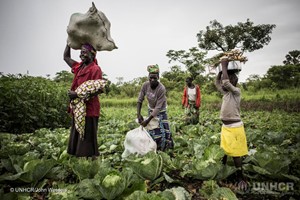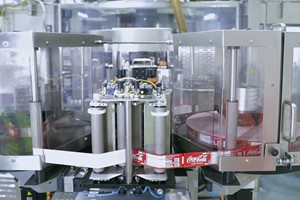The food sector significantly contributes to the climate and nature crises, with the processes involved in growing, distributing, consuming, and disposing of food responsible for one-third of annual greenhouse gas emissions. Food systems also contribute to biodiversity loss and account for 70% of freshwater withdrawals. With half of food system emissions stemming from agricultural production and land-use changes within corporate value chains, food brands play a pivotal role in transforming these systems.
Institutional Push for Regenerative Agriculture
Institutional investors, such as Federated Hermes, are advocating for the adoption of regenerative agricultural practices within the land and agriculture sector. These practices, part of net-zero commitments and guided by the Science Based Targets initiative, aim to reduce water and chemical use, prevent land degradation and deforestation, and restore soil, water, biodiversity, and carbon on farms. Regenerative agriculture includes methods like low or no tillage, precision fertilisers, soil erosion control, tree planting, and biochar fertilisers.
According to the report "Future Fit Food and Agriculture" by the World Business Council for Sustainable Development, the Food and Land Use Coalition (FOLU), and We Mean Business (WMB), such practices could halve global food system greenhouse gas emissions by 2030 and reduce farming's negative impacts on plants, wildlife, and freshwater.
Challenges for Farmers
Despite the benefits, the transition to regenerative agriculture presents significant challenges for farmers, especially those poorly compensated and facing added costs and potential short-term yield losses. Mitigating only 30% of agricultural emissions for a large-scale beef farm in Brazil could cost up to 17% of revenues, potentially leading to insolvency. For smallholder farmers in developing countries, the financial impact is even more prohibitive.
The report underscores that companies further up the value chain need to assume more costs and risks, as these represent a smaller proportion of their revenues compared to farmers. For example, the costs for a typical meat trader are estimated at 3% of revenues, and less than 1% for a multinational food company.
Corporate Efforts and Responsibilities
Currently, many companies are not making sufficient efforts to equitably share the costs of the transition. The World Benchmarking Alliance report indicates that while more companies are adopting regenerative practices, few prioritize farmers' well-being. Only 27% of companies support farmers' income stability through procurement and pricing practices, and less than 4% identify living income benchmarks or calculate income gaps.
Initiatives by Food Brands
Ingredients supplier OFI encourages regenerative practices among its smallholder farmer suppliers by identifying relevant methods for each farmer's context. Nestle runs similar programs, supporting farmers directly through a network of agronomists and testing regenerative methods like agroforestry for cocoa and coffee. Additionally, Nestle's Nespresso brand is piloting micro-insurance to protect farmers' harvests against climate change impacts and temporary yield drops during the transition to regenerative practices.
Financial Support and Premium Payments
Milindi Sibomana, Chief Agriculture Officer at One Acre Fund, advocates for financial support from corporates to help with research and training for farmers. However, he stresses the need for premiums on crops produced using regenerative agriculture to make the transition financially viable for farmers. Andrea Olivar, Strategy Director for Latin America at Solidaridad, concurs, noting the lack of market premiums for smallholders adopting regenerative practices.
Regulatory and Market Dynamics
Regulations such as the EU Deforestation Regulation and the Corporate Sustainability Reporting Directive (CSRD) are driving the uptake of regenerative agriculture. These regulations require companies to prove deforestation-free operations and allocate sufficient funding to implement net-zero plans.
Carbon Credits and Subsidies
Some companies are using carbon credits to support farmers transitioning to regenerative practices. Indigo Ag, for instance, pays farmers for carbon credits generated through verified soil carbon sequestration. Similarly, the OCP Group's carbon farming project in Brazil provides additional income for farmers through carbon credits.
Emphasis on Social Goals
Emeline Fellus of the WBCSD highlights the need to focus on social goals alongside environmental targets. Rob Cameron of Nestle emphasizes that enhancing farmer livelihoods is crucial for transforming the food system and addressing climate and nature crises. He calls for a mindset shift to prioritize people’s livelihoods, which were neglected initially, leading to the current environmental challenges.
In conclusion, transforming food systems through regenerative agriculture is essential for mitigating climate change and preserving biodiversity. However, equitable cost-sharing and financial incentives for farmers are crucial for the successful adoption of these practices. As regulatory pressures and market dynamics evolve, the collective effort of all stakeholders will be vital in achieving a sustainable and just food system transformation.
By Catherine Early
https://www.reuters.com/














